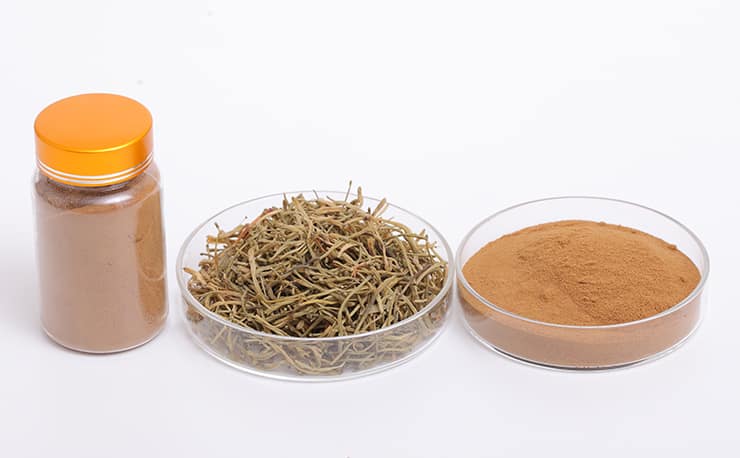Chlorogenic acid is a phytochemical found in many plants, but it is more concentrated in coffee, especially green coffee beans. Before being roasted, coffee beans can contain up to 7% chlorogenic acid, while the beans, after roasting, lose their value. Green coffee bean extract, used in supplements, contains 50% chlorogenic acid.
It has been considered capable of reducing blood sugar levels and potentially having an anti-diabetic effect. It has also been indicated for weight loss and the prevention of liver diseases.
It is a bile-acting substance and an agent that helps regulate bile flow from the liver, preventing side effects if they accumulate and begin to stagnate, conserving fat and toxins.
The beginning of the controversy: The chlorogenic acid lose weight?
Chlorogenic acid supplements are in capsule form, added to chewing gum or candy, or used as an ingredient in beverages. It operates as a slimming agent.
It becomes thinner since it can inhibit the accumulation of fat that causes weight loss in animals and humans. It would also help reduce glucose concentrations after ingestion and absorption by the small intestine. It speculates that the green coffee bean supplement could change the level of hormones involved in the distribution of fat and the use of energy by the body.
Foods that contain chlorogenic acid
The amount of chlorogenic acid in most plants is minimal. However, some plants accumulate this acid sufficient to cause an individual’s physiological effect.
Foods with the highest concentration of chlorogenic acid:
- Coffee;
- sunflower seeds;
- Chas;
- The cranberry.
- Foods with less content but still significant chlorogenic acid:
- parsley;
- of potato;
- tomato;
- maca
- Pear;
- tobacco;
- Eggplant
Extracts containing chlorogenic acid
The extracts of green coffee beans typically have 50% chlorogenic acid in their formula and are widely produced and sold as supplements.
In Chinese medicine, extracts of certain shells of plants, leaves, fruits, and flowers such as chrysanthemum and leaves of Artemisia take about 20% chlorogenic acid, that is, a dose of approximately one gram of acid per five grams of extract, a significant amount enough.
In Western herbal medicine, artichoke leaves are known for their chlorogenic acid content of approximately 20% of this compound. Other herbs know this acid content would be the root of burdock, dandelion, and echinacea.
When using any of these herbal extracts (Western or Chinese), other compounds can also contribute to the therapeutic benefits for weight loss, gas, and relief of abdominal swelling, among many others.
Benefits of chlorogenic acid for health
The formation of gallstones is prevented.
It is estimated that coffee drinkers can consume about one gram of coffee daily. This amount, when consumed regularly, may be sufficient to produce apparent therapeutic effects on the gallbladder. In women, the risk of gallstones is approximately twice as high as in men.
Minimize the chances of developing liver diseases
Studies have linked coffee consumption to a lower risk of liver diseases, including cirrhosis and cancer. This effect can come from a combination of bile action (which causes contraction of the gall bladder, stimulation of the evacuation of bile to the intestines, causing toxins and fats) and its antioxidant effect.
Green coffee bean extract has already been designated to contain up to 50% chlorogenic acid, contributing to its recent popularity increase. It finds that the extract can inhibit a type of phosphate that increases the formation of glucose in the liver. Over time, this can help to reduce the risk of diabetes.
Help to lose weight
It has been found through research that chlorogenic acid helps to slow the absorption of fat, regularly ingested through food by the body. It also increases metabolism, which helps in the process of weight loss.
Chlorogenic acid supplements
If you want to increase its intake regularly in your diet, consume it as a supplement. Because the unroasted coffee beans are very bitter, other foods do not have significant concentrations of this substance.
Be sure to buy a supplement that contains chlorogenic acid that appears on the package, which stands for antioxidant green coffee.
The supplement must contain at least 45% acid and be free of artificial ingredients.
Side effects, dosage, and use of its supplements
Green coffee contains caffeine, which can cause side effects when consumed in large quantities. These include anxiety, nervousness, tachycardia, etc. Similarly, it is not advisable to ingest the supplement, along with others that contain caffeine, to avoid dangerous interactions. High doses of caffeine can cause the loss of calcium and magnesium.








